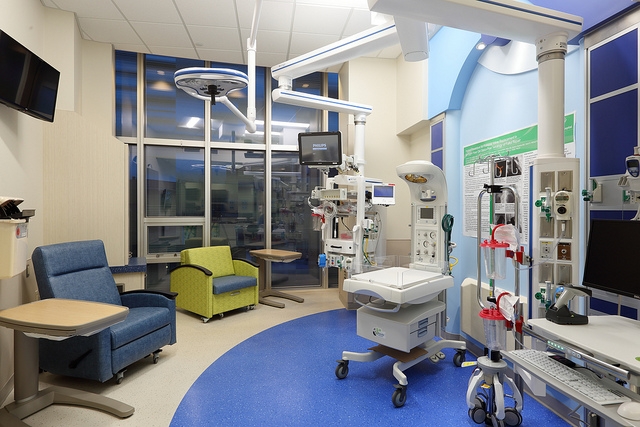Around-the-clock monitoring and care for infants, children, and teens with critical conditions.


Lifelong, life-saving care
At the Karl and Patricia Betz Congenital Heart Center in Grand Rapids, we care for patients across the full spectrum of congenital and pediatric heart conditions — from newborns with critical heart defects, to teens with arrhythmias, to adults living with congenital heart disease. Our team provides state-of-the-art diagnostics, surgical care, and lifelong monitoring and follow-up. Exceptional care is also provided at multiple pediatric cardiology clinics around the state.
Why choose us
State-of-the-art treatment and facilities
Including advanced imaging, 3D heart modeling and printing, minimally invasive procedures, active clinical research, and the only pediatric cardiac intensive care unit in West Michigan.
Specialized teams
Expert pediatric cardiologists and cardiothoracic surgeons diagnose and treat nearly every pediatric heart condition. Our fetal cardiology team even manages heart conditions before birth.
Whole-child support
Children are supported by a coordinated clinical team, including exercise physiologists, nutritionists, and other specialists. They also receive emotional support and educational resources from social workers and the Child and Family Life team.
Lifelong care
Thanks to medical advances, many children born with heart defects live long lives. Our specialists provide ongoing follow-up care for congenital heart problems throughout your child’s life, including a transition program to help teenagers develop self-management skills.
Find care in your community
Care is available at specialty clinics throughout West, Northern, and Mid-Michigan.
Conditions we treat
We treat a wide range of conditions, including:
Treatments and services we provide
Pediatric Cardiac Intensive Care Unit (PCICU)

The only facility of its kind in West Michigan, the PCICU at Corewell Health Helen DeVos Children’s Hospital in Grand Rapids provides collaborative and specialized care from our pediatric critical care and congenital heart center teams.
Our PCICU serves children who need intensive care related to a cardiac condition or procedure, including those who:
- Are preparing for, or recovering from, cardiovascular surgery or a cardiac catheterization
- Have a primary cardiac disease
- Have a congenital heart disease, including some newborns
- Have any organ system disease where a cardiac condition is also involved
Adult congenital heart disease
Thanks to the life-saving treatments they received as children, more than one million adults in the U.S. are now living with congenital heart disease. However, because few defects can truly be cured, adolescents and adults still need access to specialized, preventive and, if necessary, interventional care.
Our adult congenital heart disease program is accredited by the Adult Congenital Heart Association and provides services for teenagers and adults who were born with heart defects, including:
- Lifelong monitoring for heart rhythm problems, valve problems, pulmonary hypertension, or other late-onset issues
- A dedicated program to help teenagers better understand their diagnosis, learn how to self-manage, and transition to adult care
- Specialized care for women with congenital heart disease who are planning to become pregnant
Adults with congenital heart disorders may schedule a new patient appointment without a physician referral by calling at 616.267.9150.
Related services
Around-the-clock monitoring and care for infants, children, and teens with critical conditions.
Helping families identify, understand, and manage genetically inherited conditions.
Full clinical program for infants and children with lung disease and respiratory conditions.
Around-the-clock monitoring and care for infants, children, and teens with critical conditions.
Helping families identify, understand, and manage genetically inherited conditions.
Full clinical program for infants and children with lung disease and respiratory conditions.
Find a pediatric cardiologist
Connect with a leading pediatric cardiology provider near you — referral may be required.



